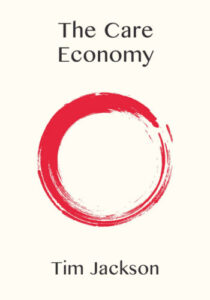One of the big puzzles in the last months, for those observing the politics in the US and elsewhere, is this: why is there apparently so little protest against the attacks on democracy and the rule of law, and why does it happen in some but not other cases?
I want to share a hypothesis, which has to do with perceptions of temporality and the ensuing emotional states. I started thinking about this a while ago, during the wave of climate protests in Europe. At the time, many comparisons were drawn with earlier forms of protest, e.g. in the civil rights movement, and the discussion quickly turned to what forms of disobedience (e.g. blocking roads, damaging works of art, etc.) are justified in what kinds of cases. But whereas many historical movements wanted to achieve something new, something for which there were no political majorities or that governments even refused to take seriously at the time, the climate protests concerned things that had already been agreed upon by politicians, and for which there is, according to surveys, a lot of public support. So what the protestors require is not so much a fundamental change in mentality or legislation – but rather that societies do what they had committed themselves to doing, e.g. in the Paris agreement.







